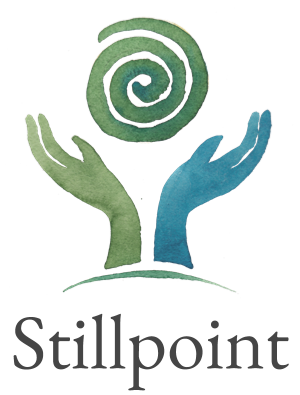The Kin-dom of God: Restoring the Great Conversation with Nature
“We are in trouble because we do not have a good story,” Catholic priest and evolutionary theologian Thomas Berry often said. “We are between stories. The old story is no longer effective. Yet we have not learned ‘the new story.’ We are talking only to ourselves. We are not talking to the rivers, we are not listening to the wind and stars. We have broken the great conversation. By breaking that conversation we have shattered the universe.”*
Over the last thirty years I’ve wrestled with this broken conversation as a spiritual director and pastor of indoor churches, as a climate activist, a mother, and now as a guide who leads people in spiritual practices that reconnect them with the natural world. I’ve discovered something I’ve known deep down all along but never had the cultural, religious, or even internal permission to embrace: spirituality and nature are not separate. Attempts to keep them apart actually do break the world.
The apocalyptic unveiling happening in our world right now makes it difficult even for those who have been sheltered in privilege to look away from the reality, both tragic and beautiful, that we are all deeply interconnected. Humans, trees, oceans, deer, viruses, bees. God.
“The new story” is emerging, and I cannot pretend to know all the layers. Yet I am sure one aspect of it relates to the worldview of belonging—a way of being human that remembers and then acts as if we belong to a community, a beloved community, larger than our own family, race, class, and culture, and larger even than our own species.
Re-placing our spirituality back into the actual sacred world, where it has been rooted for most of history, is a way to restore the great conversation. It is an act of love, of falling in love with the world. Well, not with “the whole world” because that’s too big. But with particular beings: those trees who live on your block, a certain crow who frequents your street, the shoreline on the edge of your town, the oak tree keeping watch over the wildflowers in the park. Many people, whether they go to church regularly or avoid it, tell me that they feel closest to God while they are in nature. Even a simple gaze at a full moon can be a spiritual experience if you are mindful enough. And a glorious sunset can summon hallelujahs from deep in your soul.
These are mystical experiences, so let’s go ahead and name them for what they are. Mystical experiences like this connect us directly with God, with Mystery, and remind us that we belong to a story of life on this planet that is interdependently connected and inherently sacred. As we remember ancient practices of belonging and inter-being, and create new ones, we can replace a “kingdom” paradigm of hierarchy, monarchy, and inequality with a new paradigm: a “kin-dom” of cooperation and kindred reciprocity.
As we spend contemplative and reverent time with the other beloved ones of Earth, we naturally offer our tender, gracious attention to their needs as well as our own. That’s what you do when you fall in love. I believe that nothing less will give us the courage and the energy and even the ideas we need to challenge our prevailing consumerist mindset. Nothing less will bring about the healing and restoration our world, and our own souls desperately need.
This story is nothing new to people who have never severed their spirituality from the groundedness of the actual ground. But for the dominant Western culture, this sacred reciprocity is indeed a new story. Language and lifestyles, sacraments and spiritual practices are emerging that affirm a Kin-dom of God. This Kin-dom includes the whole system of life and regards all humans and all species as inherently good and intrinsically worthy of love, which is the root meaning of the word, “glory.” In this glorious kin-dom we love neighbors—all neighbors—as ourselves. We do unto others—all others—as we would have them do unto us. Because we are family.
*Thomas Berry quoted by Mary Evelyn Tucker and Brian Thomas Swimme, “The Next Transition: the Evolution of Humanity’s Role in the Universe” in Spiritual Ecology: the Cry of the Earth, ed Llewellyn Vaughan-Lee, Golden Sufi Center, 2013.


